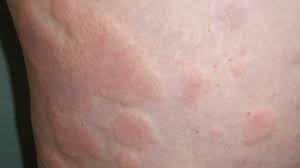
Breaking News
 Governmental Self-Preservation: Why We'll Never See The Real Epstein List
Governmental Self-Preservation: Why We'll Never See The Real Epstein List
 Fast-flexing robodog chimneys up tight spaces at 50x benchmark pace
Fast-flexing robodog chimneys up tight spaces at 50x benchmark pace
 Chronic hives: The best and safest treatments (that aren't antihistamines)
Chronic hives: The best and safest treatments (that aren't antihistamines)
 Russia rejects Trump's ultimatum for 50-day ceasefire, insists on continued negotiations
Russia rejects Trump's ultimatum for 50-day ceasefire, insists on continued negotiations
Top Tech News
Magic mushrooms may hold the secret to longevity: Psilocybin extends lifespan by 57%...
 Unitree G1 vs Boston Dynamics Atlas vs Optimus Gen 2 Robot– Who Wins?
Unitree G1 vs Boston Dynamics Atlas vs Optimus Gen 2 Robot– Who Wins?
 LFP Battery Fire Safety: What You NEED to Know
LFP Battery Fire Safety: What You NEED to Know
 Final Summer Solar Panel Test: Bifacial Optimization. Save Money w/ These Results!
Final Summer Solar Panel Test: Bifacial Optimization. Save Money w/ These Results!
 MEDICAL MIRACLE IN JAPAN: Paralyzed Man Stands Again After Revolutionary Stem Cell Treatment!
MEDICAL MIRACLE IN JAPAN: Paralyzed Man Stands Again After Revolutionary Stem Cell Treatment!
 Insulator Becomes Conducting Semiconductor And Could Make Superelastic Silicone Solar Panels
Insulator Becomes Conducting Semiconductor And Could Make Superelastic Silicone Solar Panels
 Slate Truck's Under $20,000 Price Tag Just Became A Political Casualty
Slate Truck's Under $20,000 Price Tag Just Became A Political Casualty
 Wisdom Teeth Contain Unique Stem Cell That Can Form Cartilage, Neurons, and Heart Tissue
Wisdom Teeth Contain Unique Stem Cell That Can Form Cartilage, Neurons, and Heart Tissue
 Hay fever breakthrough: 'Molecular shield' blocks allergy trigger at the site
Hay fever breakthrough: 'Molecular shield' blocks allergy trigger at the site
Chronic hives: The best and safest treatments (that aren't antihistamines)

Redness, swelling and intensely itchy wheals – those are the hallmark symptoms of urticaria, commonly known as hives. If symptoms persist for six weeks or more, the condition is considered chronic. When antihistamines, the standard first-line treatment, fail to provide relief, systemic therapies that work throughout the body are the next step.
A new large, international study, led by McMaster University in Canada, has comprehensively compared the safety and effectiveness of drugs and immunotherapies for chronic urticaria. The findings eliminate the guesswork in finding an appropriate – and, importantly, effective – treatment.
"This first comprehensive analysis of all advanced treatment options for chronic urticaria provides a clear and evidence-based 'menu of treatment options' for patients and their clinicians to choose from," said corresponding author Derek Chu, MD, PhD, an assistant professor in McMaster's Department of Medicine.
The researchers analyzed data from 93 studies and 11,398 participants, primarily adolescents and adults with moderate to severe symptoms of chronic urticaria. Only randomized controlled trials for systemic treatments were included; trials for antihistamines, steroids, and alternative medicines were excluded.
The researchers used a systematic review and Bayesian network meta-analysis (BNMA), a statistical technique that enables researchers to compare multiple interventions that may not have been directly compared in previous studies. They particularly examined outcomes important to patients, including urticaria activity (itch and wheal severity), angioedema (swelling) severity, quality of life, and treatment-related adverse events. Each study was reviewed for quality and risk of bias, and the certainty of evidence was rated as high, moderate, low and very low using the GRADE approach.
Ranked with a high certainty of evidence, the most effective treatments, showing the strongest and most consistent benefit across all patient outcomes, were omalizumab (Xolair, 300 mg every four weeks) and remibrutinib. Omalizumab is an injectable monoclonal antibody medication that works by blocking the action of immunoglobulin E (IgE), a substance that plays a critical role in allergic reactions and inflammation. Remibrutinib is an oral medication that inhibits Bruton's tyrosine kinase (BTK), blocking a specific pathway involved in the release of histamine and other inflammatory mediators that cause chronic urticaria symptoms. Although it's not yet commercially available, it has demonstrated positive results in Phase 3 clinical trials and may soon be an important treatment option.

 AI Getting Better at Medical Diagnosis
AI Getting Better at Medical Diagnosis

